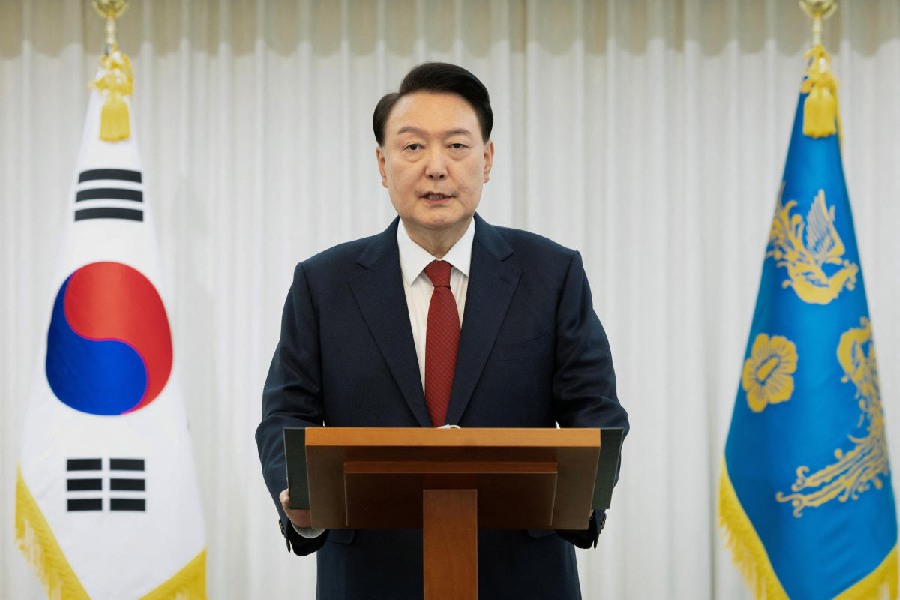South Korean President Yoon Suk Yeol, impeached on Saturday over his short-lived attempt to impose martial law, has been stripped of his duties and powers as head of state but remains president while the Constitutional Court decides his fate.
Here are some of the powers he loses and what he continues to enjoy, according to the constitution, statutes and protocol guidelines.
Powers, duties suspended
Yoon's main constitutional powers have been transferred to Acting President Prime Minister Han Duck-soo, the Yoon-picked prime minister.
These include the power to sign diplomatic treaties, appoint diplomats and put matters of national importance on foreign, defence and unification affairs to a referendum.
Yoon loses the sole power to declare martial law and to declare war against a foreign state, command of the military and immunity from prosecution for crimes.
The powers to appoint public officials including cabinet ministers, the chief justice of the Supreme Court and the three vacancies on the Constitutional Court are also suspended.
What does not change
As he remains president despite being suspended of the duties, he is entitled to remain in his official residence, use the presidential motorcade, aircraft and presidential security.
Yoon will continue to collect his 255 million won ($170,000) annual salary.
Benefits as former President
If removed from office, Yoon would lose all benefits awarded former presidents, including a pension worth 95% of his salary at the time of retirement and a staff of up to four people.
He would continue to receive security protection but not financial support for a private office, transportation and medical care for himself and his family.











